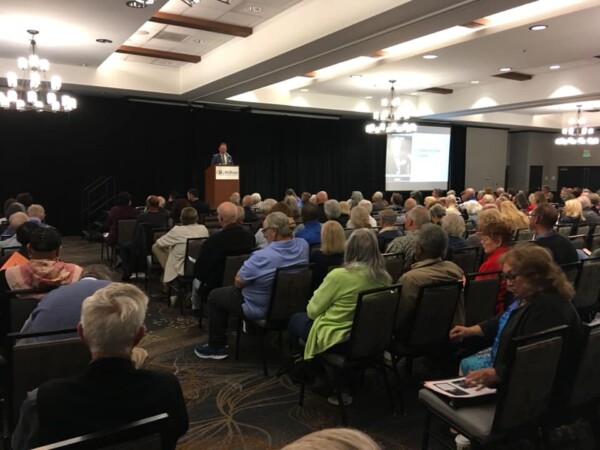10 Estate Planning “Pro Tips”

Looking for estate planning “Pro Tips” to take your estate planning know-how to the next level? We’ve got you covered! At our firm’s recent client seminar at the Sacramento Hilton Arden West, we enjoyed a continental breakfast with existing and new clients. After staff introductions and some estate planning law updates, I shared the following 10 estate planning “Pro Tips” in my presentation.
#10 Use the Internet for recipes, NOT legal advice.
Contrary to popular belief, you can’t find the answer to EVERY question on the Internet. Internet forms cannot replace the knowledge and experience of a qualified professional like an estate planning attorney.
We’ve seen difficult situations arise when clients rely on the Internet for legal advice or documents. The Internet cannot be held accountable for errors that occur, which likely won’t be discovered until you’re gone. Always consult an experienced estate planning attorney for legal advice and assistance in creating or updating your revocable living trust and other estate planning documents.
#9 Homemade lasagna? Great! Homemade amendments? Not!
Another major pitfall is trying to amend your own trust. We call this “do-it-yourself” estate planning, and it is often disastrous for those you leave behind. We’ve seen homemade amendments create ambiguity that resulted in tens of thousands of dollars in litigation.
The language required to make a valid, unambiguous amendment to your trust is very specific. It is virtually impossible for you to successfully complete this work on your own. Always use an experienced estate planning attorney to make any changes to your estate plan.
#8 See your estate planning lawyer every 5 years.
Wondering how often to review or update estate plan? We recommend setting a trust review appointment about every 5 years. This allows you to review your Estate Plan, discuss changes in the law and in your wishes concerning your estate, and make sure your Estate Plan reflects your current desires.
#7 Be careful with the beneficiary designations.
Some accounts, such as life insurance and retirement accounts, cannot be titled into your Trust. Instead, you must name a beneficiary for this account. Make sure the accounts with beneficiary designations (life insurance, retirement accounts, etc.) match your desires.
#6 Title controls.
The title to your assets will determine who receives them upon your death. Make sure the title to all assets you want to be handled by your trust is held as “[your name], as trustee of [your trust name]”.
If the title isn’t held this way, your estate may need to go through the probate process, even though you created a revocable living trust to avoid it! Don’t make this mistake.
#5 Don’t give away highly appreciated assets.
It may be tempting to give away a family cabin or a home to a family member while you’re still alive. But we strongly recommend waiting to distribute highly appreciated assets until you pass away. Doing so will save your heirs a significant amount in Capital Gains taxes.
#4 Understand Medi-Cal and nursing homes rules.
Here are some key numbers to remember regarding qualifying for Medi-Cal and seeking long-term care as of 2019:
- Single asset limit: $2,000
- Assets include cash, stocks, bonds, investments, savings, checking accounts, and real estate (not including primary residence)
- Exempt assets: personal belongings, an automobile, primary residence
- Look Back period is 30 months
- Average Private Pay Rate: $8,841
#3 Consider bouncing your last check.
Sadly, we’ve seen families torn apart after a parent dies when the kids fight over the estate. Other times, receiving a large inheritance has proved detrimental to the children. We encourage you to consider your children’s relationships and how an inheritance may affect them.
#2 Remember: you’ll be the last to know you’ve “lost it”.
How will you know when you’ve lost mental capacity? In order to create any new estate planning documents, you must know the nature of your assets and what will happen to them after your death.
Try to ensure that you make any desired estate planning changes while you still have sufficient mental capacity to be able to legally do so. Lack of mental capacity and undue influence (often exerted on those with diminished capacity) are the two most common causes of estate litigation.
#1 Listen to your lawyers.
The most unfortunate mistakes are the ones that could have been avoided had our clients listened to our legal advice. We encourage you to find an experienced estate planning attorney who you trust and then heed their advice.
Law Offices of Daniel A. Hunt
The Law Offices of Daniel A. Hunt is a California law firm specializing in Estate Planning; Trust Administration & Litigation; Probate; and Conservatorships. We've helped over 10,000 clients find peace of mind. We serve clients throughout the greater Sacramento region and the state of California.




